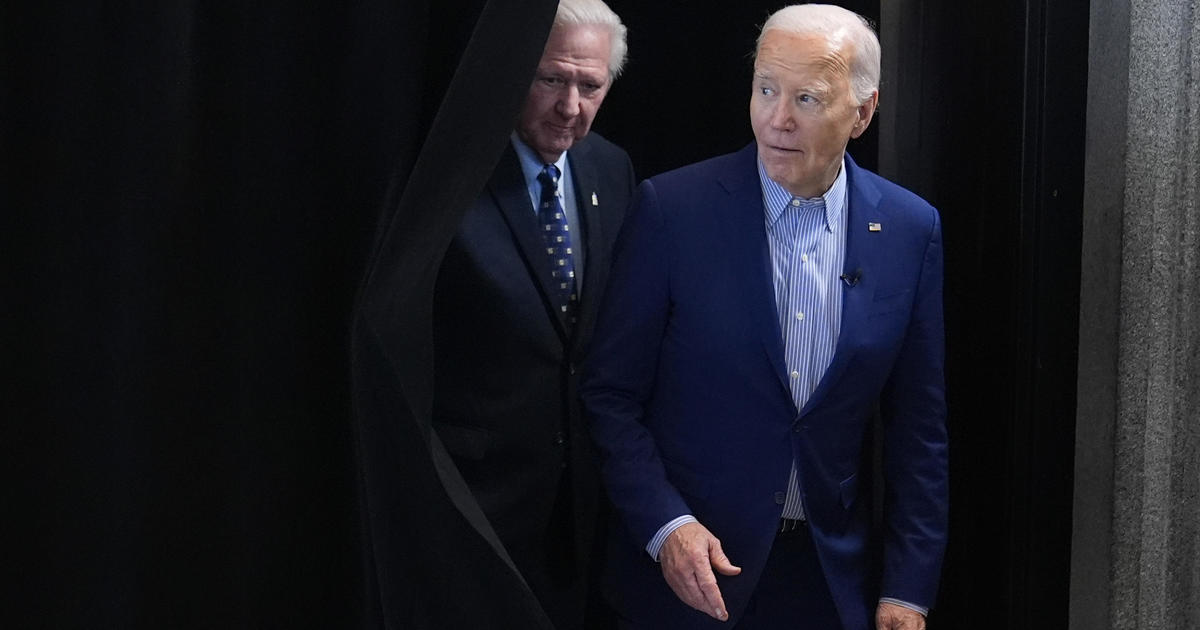Transcript: Christine Lagarde on "Face the Nation," December 9, 2018
The following is a transcript of the interview with Christine Lagarde, managing director of the International Monetary Fund, that aired Sunday, December 9, 2018, on "Face the Nation."
MARGARET BRENNAN: We're joined now by the managing director of the International Monetary Fund, the IMF. Christine Lagarde is with us. The IMF is an organization of one hundred and eighty nine countries that works to promote global economic cooperation and trade. Madame Lagarde, welcome to the broadcast.
MANAGING DIRECTOR CHRISTINE LAGARDE: Thank you.
MARGARET BRENNAN: We just saw those pictures of protests in your home country of France. The French finance minister says this is going to have a real economic toll on the country. You used to have that job, what do we make of the kind of anger and economic grievances that we're seeing in the streets there?
MADAME LAGARDE: Well those are very sad images. I'm- I'm a true Parisian and to see what's happening in Paris is extremely sad. It will have economic impact no doubt about it. And I really hope that the dialogue can be re-established that people can express their views, their grievances can be heard that they can be addressed as well. I think there is a lot of, you know, interesting developments. It's not all about the yellow vests. There are lots of people who- who have infiltrated those movements and- and who are, you know, demonstrating with violence and that is not the way it should be conducted.
MARGARET BRENNAN: I think these pictures are interesting, if you look at the globe right now, it brings up something I know you've been warning about which is you see us on the verge of an age of anger. What do you mean by that? What are the risks that you're seeing?
MADAME LAGARDE: Well the risks are that rising and excessive inequalities between people, aging of societies and, you know, an economic situation that cannot address the concerns of many. And I believe that it's a question of protecting people. Having a dialogue, making sure that there is cooperation between nations as well. Because what affects one is going to affect all. When you see a pandemic, when you see financial disruption, when you see climate change, it is going to affect all countries and I think it's critical that all of us be together when facing those issues. The same goes with cyber security. The same goes with terrorism. We are in this together and we have to close rank- ranks and be together.
MARGARET BRENNAN: You heard on this program just a few moments ago the chief negotiator for the US in what are incredibly important talks between the world's two largest economies, China and the U.S. As you say, what happens in one has global impact these days. What do you make of these- these hard line arguments here that, as the ambassador said, everything has failed when it comes to trying to iron out trade differences. We have to take this hard deadline. Everything has to be agreed to by March or we will be set for a potential escalation in this trade war.
MADAME LAGARDE: You know I used to be trade minister for my country back in 2005 and I know how difficult those negotiations can be and how long it takes to cut a deal. So I- I wish the ambassador the best of luck in reaching completion of something which will not be ultimately a final trade arrangement- agreement, whatever we call it. I hope they can establish the parameters, the framework, the timeline, the- the steps along the way because that's what it takes. But it takes both parties, U.S. and China, to be determined to reach closure on this. And it is vitally important because trade is a major engine for growth. Trade, if it is damaged, if it is threatened is going to affect growth. Less growth, less jobs, less investments, because people suddenly who are in the business of investing, who are in the business of creating jobs, will lose confidence, will be concerned as to what the rules of the road will be and they need that.
MARGARET BRENNAN: So when you hear the threat of further tariffs, that causes you concern that this will eat--
MADAME LAGARDE: Yes, it does.
MARGARET BRENNAN: --into economic growth?
MADAME LAGARDE: Yes, it does because, you know, if- you can model that and- and it's as true as a model can be and reality will- will determine eventually what it- what the impact is. But if you model a complete tariff increases, tit for tats, and all the rest of it, you end up with about point eight percent less growth in a matter of two years. Now that's a big number. That means less jobs, less investments. And this is not what anybody wants. So I very much hope that the dialogue, the agreement can be re- re-established and that we can come to terms with this.
MARGARET BRENNAN: You are seeing in the marketplace right now some concern that the- the engines of growth here in the US have been chugging along, but the markets showed some real worry this week. What do you forecast here? Are we headed towards the recession that some fear?
MADAME LAGARDE: Not in the short term. This is not what we see. We have a forecast for this year and next which is around three point seven percent. It's not bad actually. And we don't see signs of recession in the near-term based on the information we have at the moment. But it is true that if there are more tensions, if trade is under threats if people sort of wonder where should I invest and should I completely change my supply chain, that will have an impact. It will have an impact on people because you know if you look at the low income family today thanks to trade the costs of living are reduced by two thirds. So you know, the clothes that we're wearing they- the many of the things that we're using are made in Vietnam, Morocco, China, wherever. If we lose the benefit of that then it will have an impact on consumers. We're not seeing it now, it's true, but that's the threat.
MARGARET BRENNAN: We're coming up on the anniversary of the global financial crisis. You were key in France at the time, as finance minister in-in the global response. Do you see a direct line between what happened then and the kind of dislocations and anger that you're seeing now?
MADAME LAGARDE: Yes, I do. I do because I think that some of the legacies of the crisis have not yet- yet been completely healed and the wounds are still there, number one. Number two, I think that some people have lost out at that time and have not been able to recover. And they see that some others have been able to recover. So there is that, you know, sentiment of unfairness. And you know, we have done our best at the IMF. We- We- We've really put a lot of money on the table to rescue countries, in particular, because this is our job. You know the job of the IMF is- it's a bit like if you have a family and somebody in the family is- is gambling all the time and nobody is ever- eventually going to lend to that- that person. So that gambler comes to me as the family unit trustee and says, "I need money."
What are you going to do? You're going to lend because he says I can't operate, I can't work out, I can't feed the family. But you lend on the basis that he's going to be de-addicted from his gambling. He's going to rehab itself. That's what we've been doing ever since the crisis started 10 years ago. We've been telling countries, "you can't borrow? Okay. We're going to lend you short term." But we're going to ask you to fix your finances, we're going to ask you to work on your deficit. You cannot continue spending more than you earn. And we've done that. The thing is that we are still doing it because some countries have not gone through that path yet.
MARGARET BRENNAN: This week, you were named one of the most powerful women in the world by Forbes magazine. You've been outspoken about the need to be inclusive of women in global--
MADAME LAGARDE: Yes.
MARGARET BRENNAN: --economies. What was that- what does that actually quantify at? Like, what does it add up to, to have more women in the workforce?
MADAME LAGARDE: I'll give you two numbers. In this country in the US, if there was equal participation of women in the labor market, GDP would be up by 5 percent. If it operated in the same way in India or in Egypt for instance, GDP could be up by 27 percent. So this is not small numbers. It's a- it's a big addition to an economy that we want to grow and where we want jobs to be created. Women can be a phenomenal force for growth, for our economies to do better, for more prudence as well. Women are known to be a lot more prudent and less risk takers which sometimes is not a bad idea. But I would like to celebrate one thing. Chancellor Merkel is now being replaced at head of the party by another woman. That doesn't happen very often, so I'd like to take my hat off to her.
MARGARET BRENNAN: And it's certainly an economic engine there in Europe. Thank you very much, Madame Lagarde.



